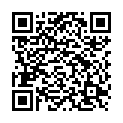|
|
|
| Module code: BIBW-161 |
|
|
2V (2 hours per week) |
|
2,5 |
| Semester: 1 |
| Mandatory course: no |
Language of instruction:
English |
Assessment:
Written exam and composition with presentation (90 minutes / weighting 1:1 / can be repeated semesterly)
[updated 14.03.2018]
|
BIBW-161 (P420-0175, P420-0176) International Business, Bachelor, ASPO 01.10.2013
, semester 1, optional course
BIBW-161 (P420-0175, P420-0176) International Business, Bachelor, ASPO 01.10.2017
, semester 1, optional course
|
30 class hours (= 22.5 clock hours) over a 15-week period.
The total student study time is 75 hours (equivalent to 2.5 ECTS credits).
There are therefore 52.5 hours available for class preparation and follow-up work and exam preparation.
|
Recommended prerequisites (modules):
None.
|
Recommended as prerequisite for:
BIBW-261 English 2
[updated 27.02.2018]
|
Module coordinator:
Prof. Dr. Thomas Tinnefeld |
Lecturer:
Dozierende des Studiengangs
[updated 26.02.2018]
|
Learning outcomes:
After successfully completing this module, students will have: strengthened and developed the four essential language skills at the B2.1 level of the Common European Framework of Reference for Languages (CEFR)
- developed their communicative language competence (taking into account linguistic, sociolinguistic and pragmatic components)
- improved their communicative language skills (text reception, text production, interaction, language teaching)
- be able to use their foreign language skills independently
- acquired basic and subject-related knowledge of the technical economics and business administration language
- acquired basic knowledge about the target language countries
- increased their awareness with regard to intercultural content and experiences
[updated 04.02.2020]
|
Module content:
- Exercises for listening and reading comprehension: (general and specialized texts)
- Understand the content of technically and linguistically complex texts in standard language;
Following current news reports in text form, expert discussions, subject-oriented communication.
- Exercises to strengthen writing and speaking skills: Dialogic/monologic speech; role playing and simulations relevant to the profession (statements, arguments, discussions, comments);
Composing detailed texts on technical topics using various sources, introduction to business correspondence; giving a presentation followed by discussion.
- Introduction to the use of a technical vocabulary
- Repetition of basic and specific (speaker-dependent) grammatical structures with exercises
- Improve and expand the standard vocabulary
- Acquire strategies to improve and guarantee comprehension
(Learning aids such as dictionaries, the Internet and grammar books)
[updated 14.03.2018]
|
Teaching methods/Media:
Use of a multimedia computer language laboratory
Use of print, audio and video media, computer-based interactivity
Partner work, group work and role playing
Presentations by the lecturer and the participants/students
Internet research
The goal is to enable authentic foreign language communication within the teaching environment.
[updated 14.03.2018]
|
Recommended or required reading:
Authentic print media
Listening comprehension (audio/video)
Individualized and target group-oriented exercise materials for vocabulary and grammar
Internet resources
[updated 14.03.2018]
|


